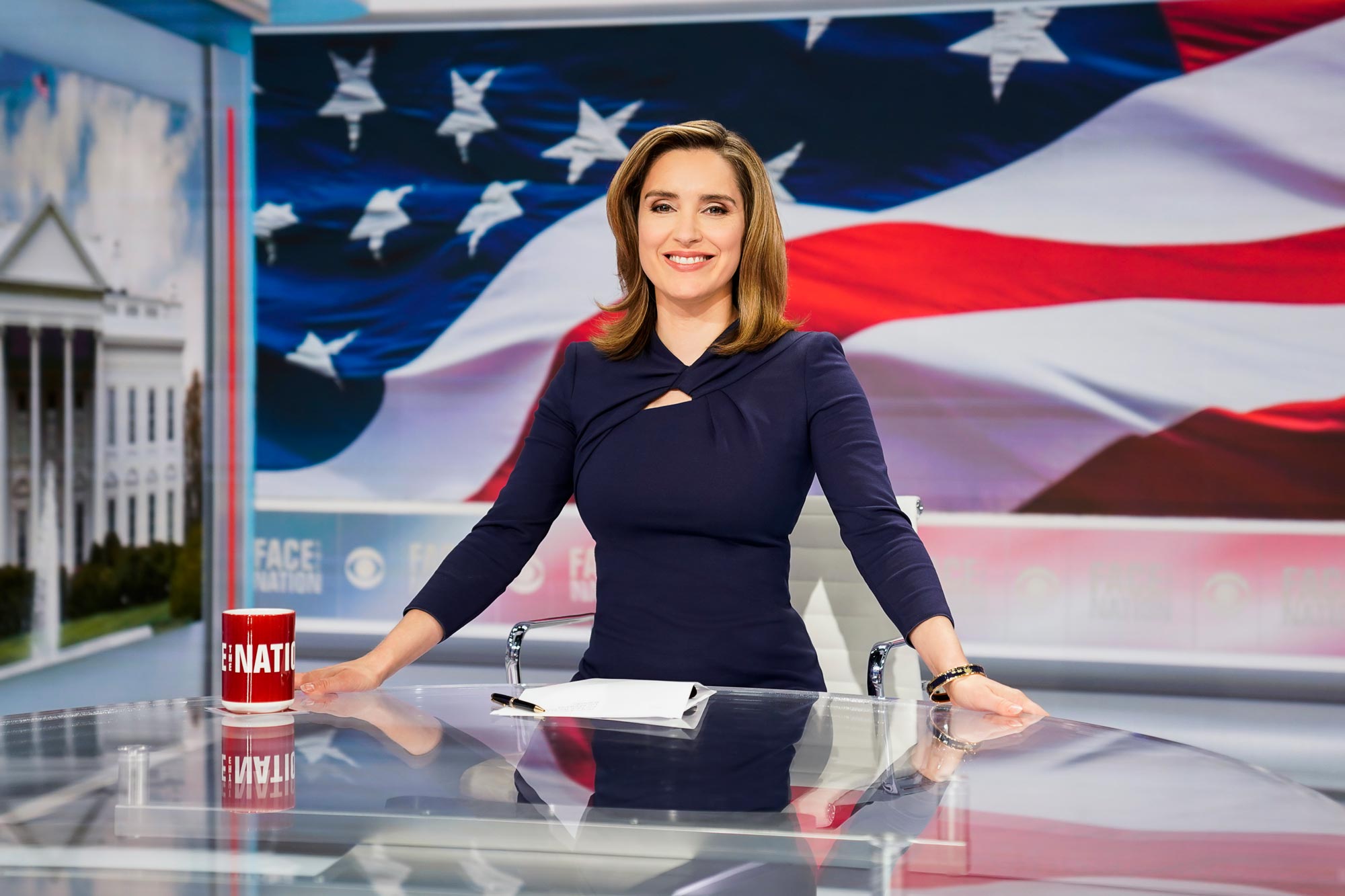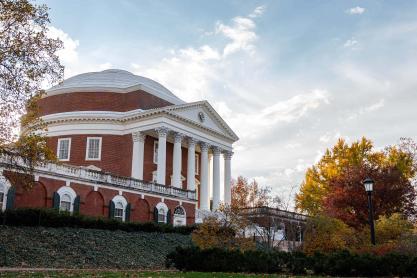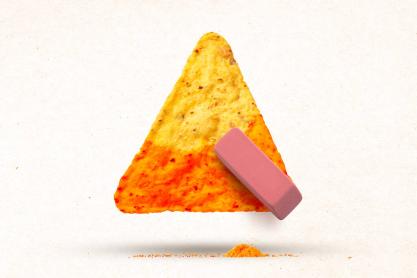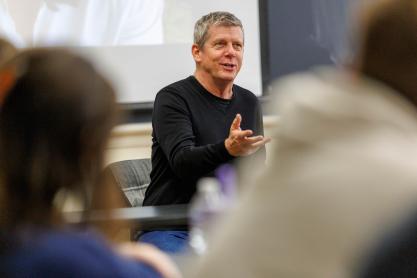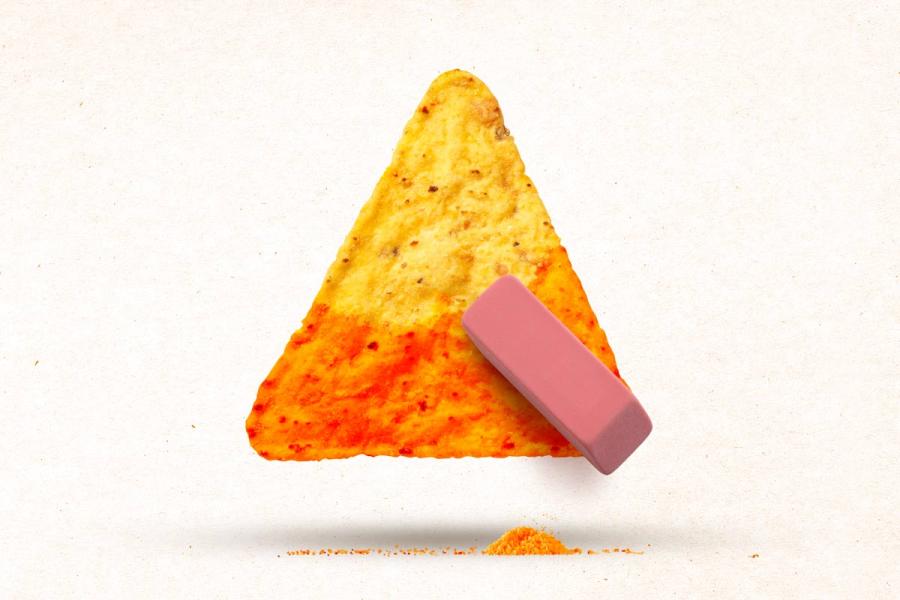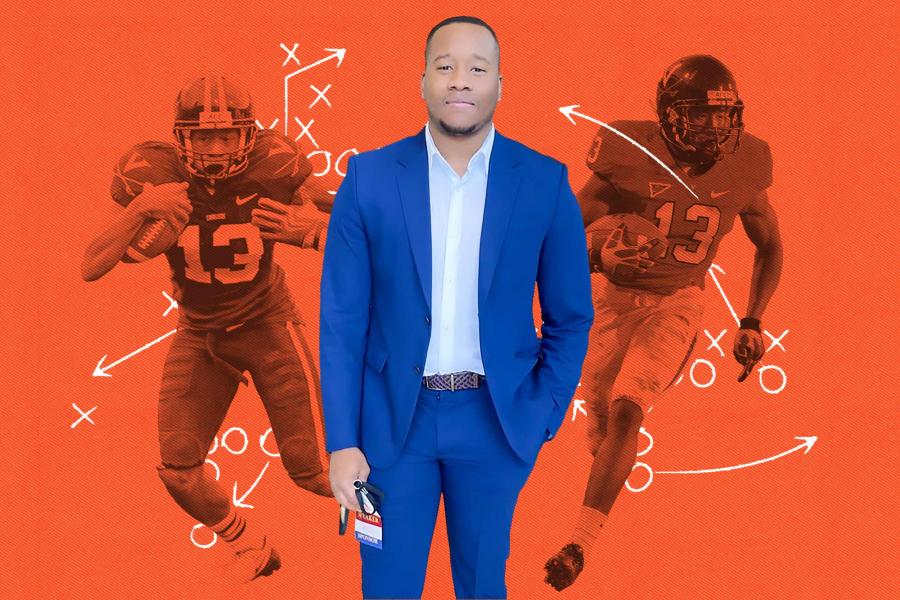There’s work-life balance – and then there’s what Margaret Brennan went through on the night of Feb. 24.
After weeks of anticipation, Russia finally invaded Ukraine. The war was on in Eastern Europe, and news outlets around the world sprang into action.
For Brennan, a University of Virginia alumna and CBS’ chief foreign affairs correspondent, that meant sliding into her home studio – a product of the COVID-19 pandemic – in Washington, D.C., and preparing to report live on national television.
If only it were that easy.
“I literally had just put my kids down upstairs,” said Brennan, a mother of two boys. “My son [Eamon] was up past his bedtime because his dad was traveling, and was upset. So I got my 10-month-old to go to sleep, breathed a sigh of relief and then I ran back downstairs.
“It all worked. But it was a lot of anxiety, I will say.”
Brennan, who also moderates CBS’ “Face the Nation” each Sunday, said she finally got to bed around 1 a.m. on Feb. 25. A day completed for a wartime journalist.
“I love my job,” Brennan said.
On Wednesday, Brennan will moderate the next session of the Democracy Dialogues series, titled “How Can We Measure the Health of Democracy?” Presented by UVA’s Karsh Institute of Democracy and co-sponsored by the Miller Center of Public Affairs, this event will examine a few of the ways we measure the strength of freedom and democracy, exploring the health of democracy in America and around the world.
UVA Today caught up with Brennan to discuss the war, her role at CBS and her expectations for Wednesday’s event.
Q. What are the main challenges as a journalist when it comes to covering this war?
A. I’m keenly aware of the sacrifices and the risks being taken by our colleagues in the field – in Ukraine and Kyiv and the rest of the country. That is incredibly important work to bear witness to. Particularly in the day and age of information warfare really being at a high pitch, having people tell you what they’re actually seeing and hearing makes a huge difference.
So I think it’s hugely important for our democracies around the world to recognize the need to keep journalists part of that conversation, because keeping the electorate informed is an essential part of keeping a democracy functioning.
In terms of what I do back in Washington – our bureau in D.C. is kind of “The Little Engine That Could.” We’re constantly picking up the phone and calling officials, trying to understand what U.S. intelligence assessments are, what those are of other Western countries like the United Kingdom and France and Germany, what they’re seeing, what they’re hearing, where this goes next.
And those are the basics of journalism. The challenge is always understanding the bias of your sources in terms of where they’re coming from. Is it wishful thinking, in terms of how they want it go versus what is actually happening? Those are the things that are always challenging in piecing together stories and policy decisions. It’s also fascinating and one of the reasons why I love my job.
Q. When speaking to an American audience about a war going on in Eastern Europe, what are your goals as a reporter?
A. People will often say, “National security and foreign policy doesn’t matter to the American people; it doesn’t decide elections.” I have never believed that. I will always have that argument with folks. I do often have that argument with folks.
But I think people need to see why it matters. I think we’ve all learned, very clearly, that what happens on one side of the globe can impact your home pretty quickly these days because of how interconnected we are. The pandemic really laid that bare on so many levels.
When it comes to a conflict 5,000 miles away, why does it matter to have a hot war in the center of Eastern Europe, in the largest country there? It matters because it’s a huge food supplier; the breadbasket of Europe, it’s a wheat supplier. I’m reading reports talking about food shortages already existing on the globe and those could get more acute, particularly in areas of the Middle East that are highly dependent on Ukrainian wheat. It also means the price of your bread might go up at the grocery store. And looking at Russian oil and gas and petroleum products and that supply potentially getting cut back due to sanctions, that is one of the reasons why the price of oil will be impacted, but it’s not the only one. The geopolitical risk will continue to be priced into the oil and gas. That does matter. If you’re in California, the price of gas is like $6 a gallon right now. That’s pretty huge in an environment where inflation is already at 40-year highs.
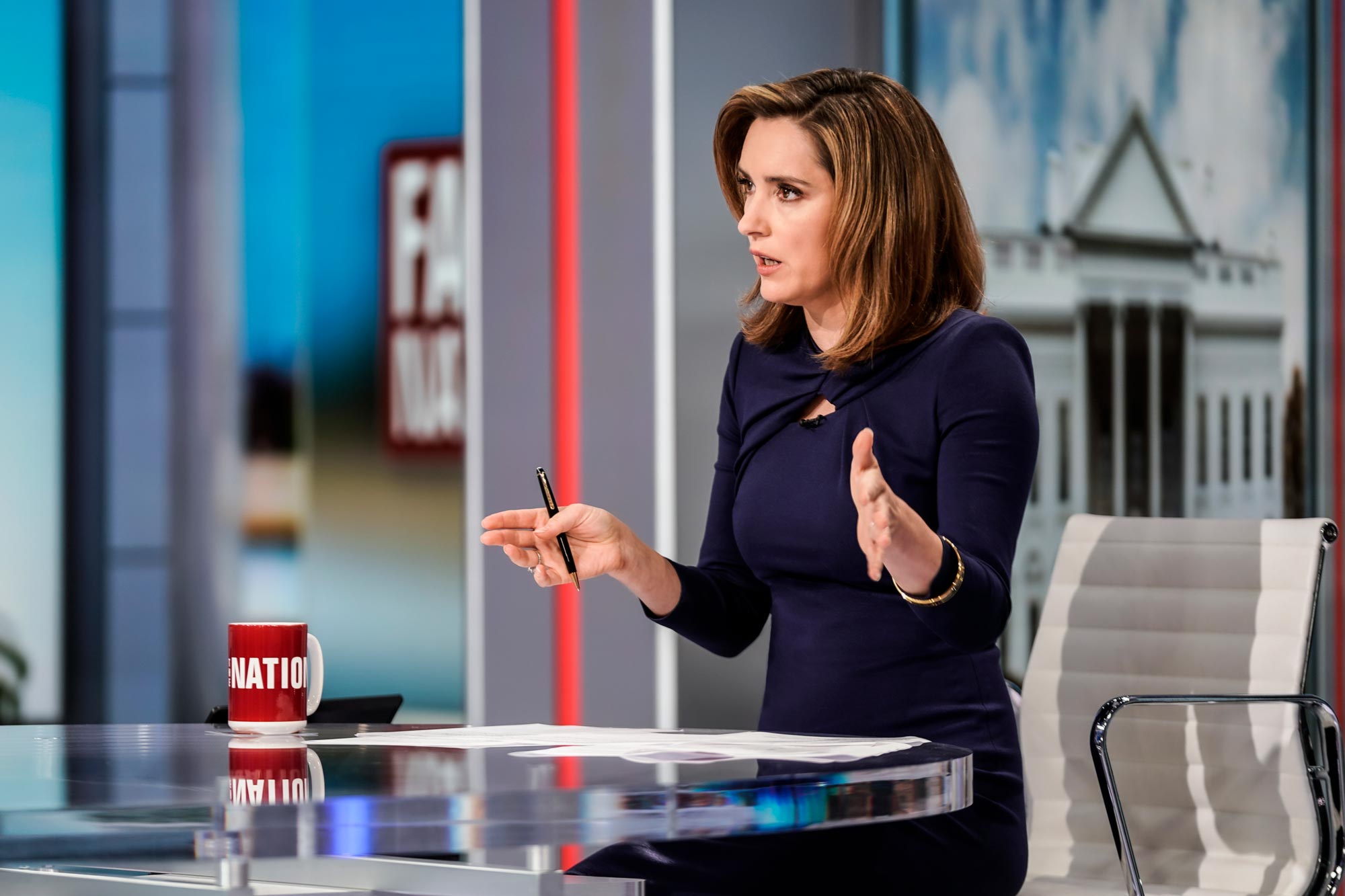
These days, Margaret Brennan has the unique challenge of contextualizing a war in Europe for an American audience. (Photo by Michele Crowe, CBS News)
So those are pocketbook issues that impact people. If you’re a trader in a marketplace, you know this instinctively. The person at home might not see those dots connect as well.
They [Americans] should also care just as humans, of course, about mass loss of life and atrocities and violations of norms, because once we become callous to that and we can stomach that, it really draws into, “Well, what does matter to us?” and “What is our humanity?”
I think a massive refugee crisis like you’re seeing right now – more than 1.5 million people have fled in less than two weeks – is important. We should have learned that lesson if we just look back at 2015 and the Syrian civil war, where refugees pouring into other countries does have an impact on the surrounding ones. It impacts their local politics; it impacts their local economies. It can be destabilizing. We’ve seen bad actors weaponize refugee flows, essentially trying to cause political problems for their neighbors.
So, the war in Ukraine doesn’t stay in Ukraine. It reverberates around the globe. It’s just in what form does it impact you personally? So pulling out some of those threads is something that I think is important. And we’ve done that for the past two weeks on [“Face the Nation”]. We’ve dedicated the majority of our hour to this subject.
Q. What’s at stake for global democracy as it relates to the war in Ukraine?
A. I think there are a few different reasons why it matters. Americans like to tell ourselves the story of being the defender of human rights and being a defender of democracy – and this is a test of that. You have a human rights catastrophe playing out on live television in front of the world, and the world deciding that it will not use force to defend the democratic state that is coming under siege out of fear of getting sucked in themselves.
It’s interesting to watch the diplomacy that is being done in terms of knitting together the sanctions regimes as democracies are trying to use something other than force to defend Ukraine.
But I’m very mindful, in talking about all of that interesting political maneuvering, that it doesn’t make a difference for someone in a bunker right now or someone running for their lives right now. And I think that’s one of those reckonings that democracies also have to have with themselves. And it’s interesting that it’s happening in a democratic country in Europe. Because the world has made that decision more than a few times in the past years – not to intervene in the midst of human rights catastrophes when they were happening in the Middle East or elsewhere.
